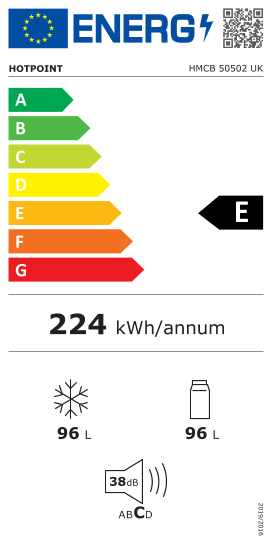
Energy Saving Home Appliances in Ireland: How They Work and Why You Need Them - Joyces Expert
Welcome to Joyces Expert's guide on energy-saving home appliances. Learn how these appliances can help you save on energy bills and reduce your environmental footprint in Ireland.
Importance of Energy Conservation and Energy-Saving Appliances
Energy conservation plays a crucial role in protecting our environment and reducing carbon emissions. Energy-saving home appliances are designed to minimise energy consumption without compromising performance. They are essential in promoting sustainable living by efficiently using resources.
Understanding Energy Efficiency Ratings and Technologies
Energy Efficiency Ratings
Energy efficiency ratings, such as the EU
energy label, help consumers evaluate appliances based on their energy
consumption. Higher ratings indicate greater energy efficiency.
Types of
Energy-Saving Appliances
● Refrigerators and Freezers: Energy-saving refrigerators and freezers feature
improved insulation technology that minimises energy loss. This enhanced
insulation helps maintain consistent temperatures inside the appliances,
reducing the workload on compressors and thus lowering energy consumption.
● Washing Machines: Modern washing machines incorporate advanced water-saving
mechanisms that not only reduce water usage but also conserve energy. Features
such as automatic load sensing and adjustable water levels ensure that only the
necessary amount of water is used per cycle, contributing to overall energy
efficiency.
● Dishwashers: Energy-saving dishwashers are designed for efficient water
and energy consumption. They utilise sensors and advanced cleaning technologies
to optimise water usage and cycle times. Energy-efficient models often feature
eco-friendly wash cycles that minimise both water and energy consumption
without compromising cleaning performance.
● HVAC Systems (Heating, Ventilation, and Air
Conditioning): HVAC systems
equipped with programmable thermostats and variable-speed motors are pivotal in
optimising energy usage. Programmable thermostats allow homeowners to set
heating and cooling schedules based on occupancy patterns, ensuring energy is
not wasted when spaces are unoccupied. Variable-speed motors adjust fan speeds
according to the heating or cooling demand, further enhancing energy
efficiency.
● LED Lighting: LED (Light Emitting Diode) lighting is renowned for its
energy efficiency compared to traditional incandescent or fluorescent bulbs.
LEDs consume significantly less electricity while providing comparable or
better lighting quality and longevity. They are an ideal choice for reducing
electricity bills and minimising environmental impact through lower energy
consumption and fewer replacement needs.
Advantages of
Energy-Saving Home Appliances
● Lower Utility Bills: Energy-saving appliances contribute to lower monthly
utility bills by reducing energy and water consumption. Over time, these
savings can offset the initial purchase cost of the appliance.
● Reduced Environmental Impact: By conserving energy and water resources,
energy-saving appliances help decrease carbon emissions and conserve natural
resources. This reduction in environmental impact supports sustainable living
practices.
● Enhanced Durability: Energy-efficient appliances often boast longer lifespans
due to advanced technologies and superior build quality. Their efficient
operation results in less wear and tear on components, translating to fewer
repairs and replacements over time.
● Government Incentives: In recognition of their environmental benefits,
many regions offer incentives or rebates to encourage the purchase of
energy-efficient appliances. These incentives can include tax credits, cash
rebates, or discounted pricing, making it more affordable for homeowners to
invest in eco-friendly appliances.
Maximising Energy Savings
To ensure you get the most out of your energy-saving appliances and reduce your household's energy consumption, follow these tips:
- Perform Regular Maintenance: Regular maintenance is crucial to keep your appliances operating efficiently. Clean filters, vents, and coils as recommended by the manufacturer. This maintenance prevents energy waste due to clogged filters or inefficient operation.
- Use Appliances During Off-Peak Hours: Electricity rates often vary throughout the day. Using your appliances during off-peak hours, such as early morning or late evening, can reduce your energy costs. Check with your utility provider for specific off-peak times in your area.
- Upgrade Old Appliances with Energy-Efficient Models: Older appliances tend to consume more energy than newer, energy-efficient models. When replacing appliances, look for those with high energy efficiency ratings, such as A+++ ratings for washing machines or A+++ for refrigerators. These models are designed to use less energy while providing the same or better performance.
- Compare Energy Labels and Features Before Purchasing: Energy labels provide valuable information about an appliance's energy efficiency. Compare the energy consumption figures (kWh/year) and energy efficiency classes (e.g., A+++, A++, A+) when choosing between models. Additionally, consider features like eco modes, temperature settings, and programmable timers that can further enhance energy savings.
By implementing these practices, you can effectively maximise the energy-saving potential of your appliances, lower your utility bills, and contribute to a more sustainable environment.
In conclusion, energy-saving home appliances are not only environmentally friendly but also cost-effective for homeowners in Ireland. Consider investing in these appliances to save money and contribute to a greener future. Visit Joyces Expert to explore our range of energy-saving appliances and start making a positive impact today.
FAQ Section
Q: How much can I save with energy-saving appliances?
A: Energy-saving appliances can significantly reduce your energy bills, with savings varying based on usage and appliance efficiency.
Q: Are energy-efficient appliances more expensive?
A: While the initial cost may be higher, the long-term savings on energy bills often outweigh the upfront expense.
Q: Do energy-saving appliances require
special installation?
